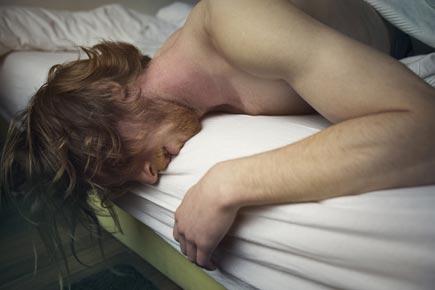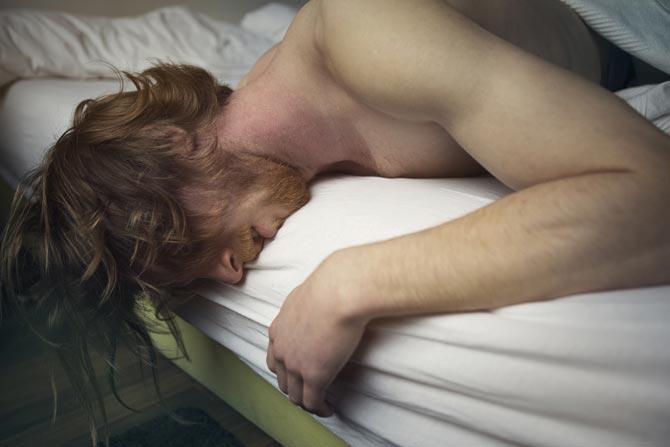A rare medical disorder that affects men after they achieve orgasm, has been studied extensively by medical experts over the years. Termed medically as postorgasmic illness syndrome (POIS), it causes severe muscle pain throughout the body following ejaculation

 Representational picture
Representational picture
ADVERTISEMENT
A rare medical disorder that affects men after they achieve orgasm, has been studied extensively by medical experts over the years. Termed medically as postorgasmic illness syndrome (POIS), it causes severe muscle pain throughout the body following ejaculation.
Based on several studies, doctors say the symptoms of postorgasmic illness syndrome (POIS) can last last for up to a week and that the frequency of the disorder may be greater than has been reported in the academic literature since many POIS sufferers are undiagnosed. The illness has so far been diagnosed mostly in men with the exception of the just one female case so far.
POIS or POIS attacks (which the symptoms are named) is called by a number of other names, including postejaculatory syndrome, benign coital headache, postorgasm illness syndrome, post ejaculation sickness and post orgasmic sick syndrome.
Some of the symptoms of POIS are...
>> Severe muscle pain throughout the body
>> Excessive fatigue
>> Mild to severe headache
>> Weakness
>> Flu-like or allergy-like symptoms such as sneezing, itchy eyes, and nasal irritation
>> Cognitive dysfunction
>> Intense discomfort
>> The feeling of intense warmth or cold
>> Depression
>> Memory issues
Researchers find that many sufferers of Postorgasmic illness syndrome (POIS) start experiencing the symptoms after or within a half hour of ejaculation. In some males, the onset of POIS is in puberty, while in others, the onset is in their twenties. Many report lifelong premature ejaculation, with intravaginal ejaculation latency time (IELT) of less than one minute.
Possible causes of postorgasmic illness syndrome (POIS)
Some experts are of the opinion that POIS could be caused by an auto-immune reaction not to semen itself, but to another substance that is released during ejaculation, such as to cytokines (a broad and loose category of small proteins important in cell signaling). However, this hypothesis has been disputed.
Another theory suggests that POIS could be the result of a hormone imbalance, such as low progesterone, low cortisol, low testosterone, elevated prolactin, hypothyroidism, or low DHEA.
Some studies have revealed hyperglycemia or chemical imbalances in the brain, intense emotional stimuli during sexual intercourse can lead to autonomic imbalance and an associated asthma attack, which may occur in men, who indulged in sexual activity for the first time.
Mangaement and treatment
Since there's no standard treatment methods, patients undergo a thorough medical examination to determine and identify the POIS symptoms before they can be treated. POIS sufferers are adviced to abstain from sexual activity, especially ejaculation, or schedule it for times when they can rest and recover for several days afterwards.
A patient with low progesterone, a crucial metabolic intermediate in the production of other endogenous steroids, including the sex hormones, who complained of symptoms for 27 years was successfully treated with oral drug norethisterone, which he took 5 mg of half an hour before sexual activity and immediately afterwards on certain occasions.
Another POIS sufferer treated with nonsteroidal anti-inflammatory drugs (NSAIDs) just prior to and for a day or two after ejaculation. Two patients, in whom POIS was suspected to be caused by auto-immune reaction to their own semen, were successfully treated by allergen immunotherapy with their own autologous semen.
However, in a severe case, one patient decided to undergo castration in order to relieve the symptoms of POIS, which he felt were unbearable.
A related disorder termed sexual headache, known medically as coital cephalalgia, occurs in the skull and neck during sexual activity, including masturbation or orgasm. Experts say it is estimated to appear in roughly 1 per cent of the world's population, can happen during sex at any age and is believed to be more common in men than women. (Read more)
 Subscribe today by clicking the link and stay updated with the latest news!" Click here!
Subscribe today by clicking the link and stay updated with the latest news!" Click here!






